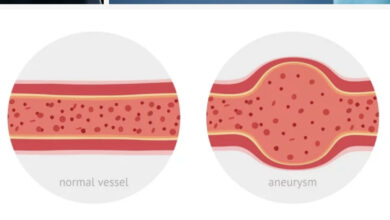
Patients with Alzheimer’s Disease (AD) are a tricky lot! Yes, they certainly are. I saw it first hand in husbands brought in by their wives, or mothers brought in by their daughters. Family members or caregivers are always the ones to notice a problem first. They see a behavior change, a personality difference, or a peculiarity they’ve not seen before. Dad said something that didn’t make sense, or mother forgot something she should have remembered. But dad is clueless and the mother denies there’s anything wrong.
Alzheimer’s doesn’t just suddenly appear overnight. People don’t just wake up one morning and are suddenly demented. If they do, they have a serious acute neurologic problem. AD is a degenerative disease of the brain that develops slowly and takes years to be completely obvious. Subtle changes begin where dad “appears to be slipping,” or mom “just isn’t herself.”
But AD patients instinctively react to caregiver’s concerns by developing deflective behaviors that disguise their symptoms. They answer questions with a question and are crafty at not giving straightforward answers to “yes” or “no” questions. They learn how to hide their thinking and remembering deficits so as to fool a questioner into thinking they’re normal when they certainly are not.
When asked why they couldn’t remember something like where they work, their reply is, “if you worked there you wouldn’t know either.” Or when asked to subtract 7 from 100 they say,” I was never good at math.” Or when asked who was President before Obama, they’ll say “I don’t know but I didn’t like him,” rather than his name. These are subconscious efforts to disguise and hide their intellectual (cognitive) decline. Decline happens gradually, and patients almost never recognize they have a problem. They unwittingly hide their symptoms to deflect attention from a problem of which they are completely unaware.
Most people who came to my office alone complaining about memory problems almost never had dementia. They all pass mental status exams easily and are greatly relieved to know they are having normal “senior moments” and are not developing Alzheimer’s. Those patients with the true disease remain unconvinced even after failing the mental status exam. They exist in their own unrealistic world, still able to communicate but not always meaningfully.
The intellectual decline is a major harmful occurrence in AD. A once smart accountant can’t do the math, a bank teller can’t balance her checkbook let alone remember to make entries in it, and a mother forgets she left a cake in the oven. Memory, judgment, reasoning, problem-solving, disorientation (getting lost), and written and oral communication are intellectual functions Alzheimer’s patients lose. Personality and behavior changes, agitation, and withdrawal from work and social activities also develop. AD patients have difficulty performing familiar tasks, have trouble comprehending situations, and cannot communicate or even formulate rational thoughts. A once-vibrant person becomes someone with whom you can no longer meaningfully interact.
Recognition by family members normally happens first. Not everyone is in agreement, though, delaying diagnosis and treatment. Denial by some family members can be hard to overcome, even after they witness their loved one fail the Mini-Mental Status Exam (MMSE). If possible, all involved should agree that a problem exists, and begin to plan for the patient’s future needs, in spite of reluctance on the part of some. But someone has to take the lead and make the tough decisions on the patient’s behalf. The doctor has to be impartial but is trained to pursue a diagnosis one way or the other despite the patient’s attempt to fool you, and to emphasize the seriousness of the disease.
Responsibility always falls on the concerned few. The doctor must be supportive, be understanding, and provide the family direction and comfort. Early in the course of Alzheimer’s Disease, patients are still well-enough intellectually to deflect away some observer’s recognition of the diagnosis, but as years pass recognition is obvious and acknowledgment allows for understanding, acceptance, and compassionate care.
William Gilkison MD
Cave Creek, AZ




